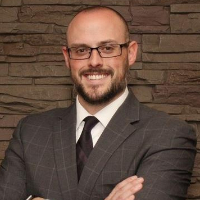 Morgan DUI-DWI Lawyers, Utah
Morgan DUI-DWI Lawyers, Utah
Sponsored Law Firm
-
 x
x

Click For More Info:
-
Melton Law
5955 South Redwood Road Suite 103 Taylorsville, UT 84123» view mapCriminal Defense and Accident & Injury Legal Expertise You Can Rely On
Melton Law is dedicated to providing competent and great representation to our clients. We will be there to help you and answer any questions you have every step of the way.
800-952-9770
Sponsored Lawyers
1-10 of 11 matches
Criminal, DUI-DWI, Felony, Misdemeanor, White Collar Crime
Logan Collins is a criminal defense attorney in Bountiful, UT. He concentrates his practice on DUI, drug crimes, violent crimes and more. Logan is a member of the Utah State Bar and earned his J.D. from the University of Utah S. J. Quinney College of Law in 2016. He earned his undergraduate degree from the University of Utah in 2012. To schedule your FREE consultation with the Bountiful Criminal Defense Attorney, visit online or call 385-777-2753.
(more)Domestic Violence & Neglect, Juvenile Law, DUI-DWI, Criminal
John K Johnson is a practicing lawyer in the state of Utah handling criminal defense matters.
(more)


 William Melton Taylorsville, UT
William Melton Taylorsville, UT Practice AreasExpertise
Practice AreasExpertise


